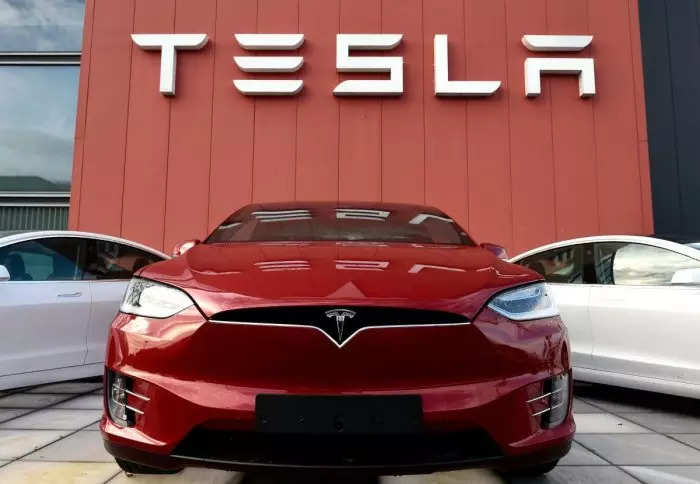
Bengaluru | Mumbai:
US-based electric carmaker Tesla Inc’s India team has started working for the larger Asia-Pacific (APAC) market, multiple industry sources said, as the government has yet to reduce import duties on electric vehicles (EVs).Tesla’s plan to enter the country has been on hold since 2019 as India levies a 60% import duty on EVs priced at USD 40,000 or lower. It also levies a 100% duty on EVs priced at more than USD 40,000. Tesla has been lobbying the government to reduce the rates.
It is unclear whether Tesla will bring in cars as completely built units (CBUs), which attract a higher duty, or as completely knocked down (CKD) pieces, which must be reassembled. The pricing of its electric cars in India would depend on this decision.
A source aware of the company’s plans said most of its team members travelled to Dubai and are “mainly working for the Middle-East markets”.
Australia, New Zealand, South Korea and Taiwan are also part of Tesla’s APAC business unit.
On business networking platform LinkedIn, Nishant Prasad, a former Ather Energy executive who joined Tesla as charging manager for India to set up its charging stations, called Superchargers, has changed his designation to “Charging Operations Lead-APAC.”
Manuj Khurana, who is responsible for public policy and business development, shifted to California in April to take up a product role, according to his LinkedIn profile.
Tesla started hiring in the country last year and Khurana was its first employee.
The company has more than a dozen key executives in India who oversee business development, public policy, legal, human resources, charging, after-service, homologation and logistics.
Tesla India is headed by US-based Indian executive Prashanth Menon.
Other key executives include Chitra Thomas, Nitika Chabbra, Sandeep Pannu, Nithin George Thomas, Vaibhav Taneja, Venkat Sreeram and David Feinstein.
Menon, Taneja and Feinstein have worked with Tesla in the US, while the others are external hires recruited specifically for Tesla India.
Tesla did not respond to ET’s queries.
Roadblock
The move to service the larger APAC market comes at a time when the company has hit a roadblock in the country with respect to import duty reductions.
The government has encouraged a transition to EVs, provided they are made in the country.
It has given several incentives, including the Rs 10,000 crore FAME II (Faster Adoption and Manufacturing of (Hybrid and) Electric Vehicles in India) subsidy scheme for the adoption of electric vehicles.
Ten companies, including a Reliance Industries subsidiary, Hyundai Global Motors and Ola Electric, have applied for the government’s Rs 18,100-crore production-linked incentive (PLI) scheme for advanced chemistry cells (ACC).
India expected Tesla to participate in the PLI scheme for manufacturing batteries in the country, a source who works closely with the government told ET.
Tesla is certain to bring in its entry level Model 3, which is likely to cost around Rs 60-70 lakh. The Model 3 is expected to compete with the Mercedes E or BMW 5 series in the midsize luxury car segment.
If the US company decides to bring in its more expensive Model S, or its luxury SUV, the Model X — both expected to cost around Rs 1.5 crore — that might come in as CBUs.
This puts these cars in the domain of the wealthy, experts said, which means there won’t be enough volumes for Tesla to justify building a plant in the country at present.
The spare capacity in its China plant might be able to fulfil demand from India, they said.
Road transport and highways minister Nitin Gadkari has said that Tesla must not import cars from China. The Shanghai Gigafactory is the closest Tesla manufacturing facility from India.
On Monday, Gadkari said that if the US-based electric carmaker manufactures its EVs in India, then the company will get the required benefits.
In March, Tesla’s Netherlands subsidiary invested Rs 20 crore into Tesla India, according to regulatory filings with the ministry of corporate affairs.
A source aware of the matter told ET that the company has yet to give up the leased spaces intended for setting up experience centres in Mumbai. Tesla also took up an office space in Bengaluru last year.
Also Read:

















